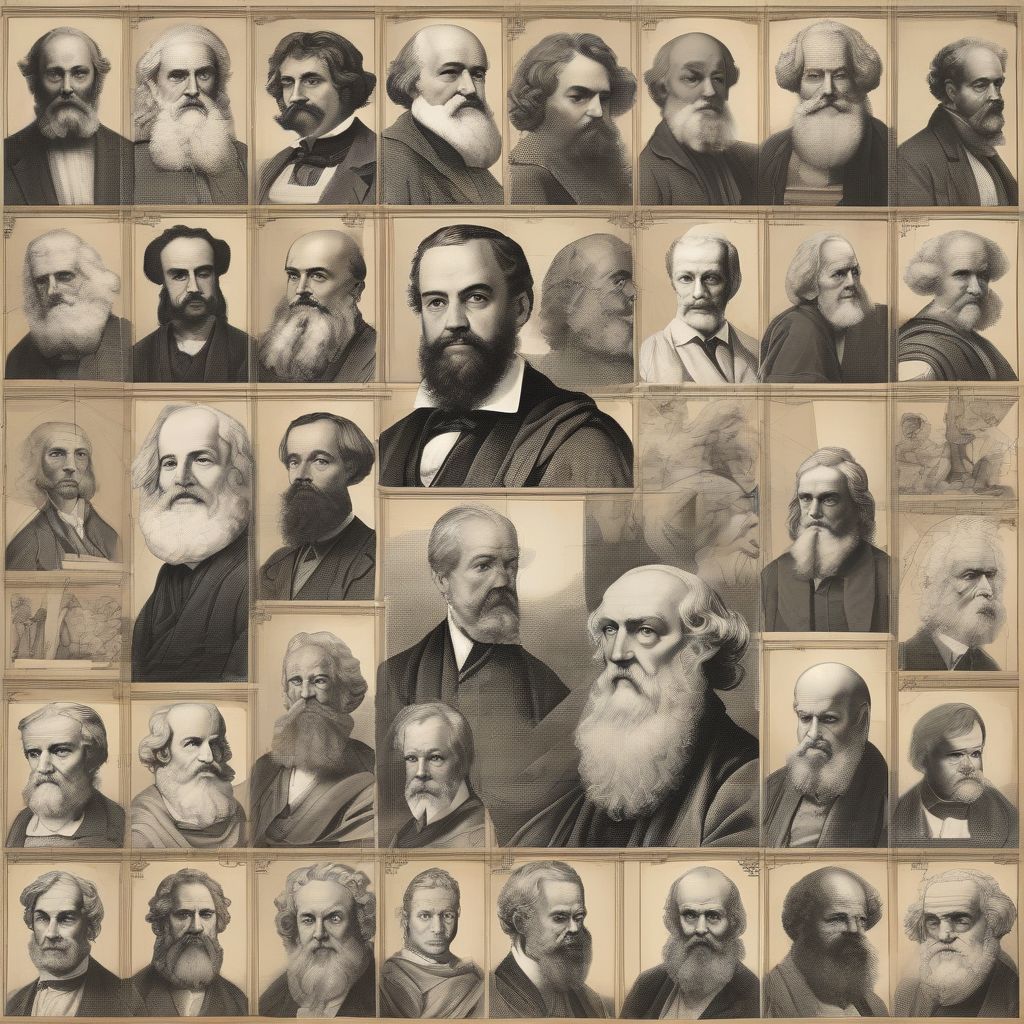Have you ever wondered how we arrived at our current understanding of the world? Our beliefs, values, and even our political systems are rooted in the philosophies developed centuries ago. Examining the historical perspectives of renowned thinkers who impacted modern philosophy gives us a crucial lens through which to understand not just the past, but also the present, and perhaps even the future. Let’s embark on a journey through intellectual history, exploring the key figures whose ideas shaped the modern world.
The Dawn of Modern Philosophy: Rene Descartes and the Quest for Certainty
The 17th century marked a turning point, with Rene Descartes often hailed as the “father of modern philosophy.” Descartes, grappling with skepticism, embarked on a quest for absolute certainty. His famous “Cogito, ergo sum” (“I think, therefore I am”) became a cornerstone of rationalism. He argued that the only undeniable truth is the existence of one’s own thinking mind. From this foundation, he attempted to rebuild knowledge through reason and logic. This emphasis on reason profoundly influenced subsequent philosophers, shaping the trajectory of Western thought.
Descartes’ Influence on Rationalism
Descartes’ rationalist approach laid the groundwork for other prominent thinkers like Baruch Spinoza and Gottfried Wilhelm Leibniz. Spinoza, inspired by Descartes’ geometrical method, constructed a comprehensive system of philosophy that equated God with nature, a radical concept for his time. Leibniz, another rationalist giant, developed the concept of monads, the fundamental building blocks of reality, which he believed were indivisible units of force and perception. These thinkers, while diverging on specific points, shared a commitment to reason as the primary tool for understanding the universe.
The Rise of Empiricism: Locke, Berkeley, and Hume
In contrast to the rationalists, the empiricists believed that all knowledge comes from sensory experience. John Locke, a key figure in the British Empiricist movement, rejected the notion of innate ideas, arguing that the mind is a “tabula rasa,” or blank slate, at birth. He posited that knowledge is acquired through observation and reflection upon our experiences.
The Challenge of Perception: Berkeley and Hume
George Berkeley, building upon Locke’s empiricism, took a more radical stance. He argued that “to be is to be perceived,” essentially claiming that reality consists only of minds and their ideas. David Hume, perhaps the most skeptical of the empiricists, questioned the very foundations of causality and induction, arguing that we have no rational basis for believing that the future will resemble the past. His skepticism profoundly impacted the development of epistemology, the study of knowledge.
Kant’s Synthesis: Bridging Rationalism and Empiricism
Immanuel Kant, an 18th-century German philosopher, sought to reconcile the seemingly opposing views of rationalism and empiricism. He argued that while experience is essential for knowledge, the mind actively shapes and organizes that experience through pre-existing categories of understanding, such as space, time, and causality. Kant’s “transcendental idealism” revolutionized epistemology and metaphysics, providing a framework that influenced generations of philosophers.
Kant’s Impact on Moral Philosophy
Kant’s contributions extended beyond metaphysics and epistemology to ethics. He developed a deontological moral theory, arguing that actions are morally right or wrong based on their adherence to duty, regardless of their consequences. His categorical imperative, which states that we should act only according to principles that we could wish to become universal laws, remains a powerful influence in ethical thought.
The 19th and 20th Centuries: Nietzsche, Marx, and Beyond
The 19th and 20th centuries saw a proliferation of philosophical movements, including existentialism, pragmatism, and postmodernism. Friedrich Nietzsche, a highly influential figure, challenged traditional morality and religion, famously proclaiming “God is dead.” He emphasized the importance of individual will to power and the creation of meaning in a world without inherent purpose.
Marx and the Critique of Capitalism
Karl Marx, focusing on social and political philosophy, offered a powerful critique of capitalism, predicting its eventual downfall and replacement by a communist society. His ideas profoundly influenced political movements and revolutions around the world.
The Continuing Relevance of Historical Perspectives
Studying the historical perspectives of these renowned thinkers is not simply an academic exercise. Their ideas continue to shape our world, influencing our political systems, ethical frameworks, and even our personal beliefs. By understanding the historical context of these ideas, we can better grapple with contemporary issues and navigate the complexities of the modern world.
 History of Philosophical Thought Influencing the Modern Era
History of Philosophical Thought Influencing the Modern Era
No products found.
Conclusion
From Descartes’ quest for certainty to Nietzsche’s critique of traditional morality, the historical perspectives of renowned thinkers provide a rich tapestry of ideas that have shaped modern philosophy. Exploring these perspectives allows us to gain a deeper understanding of the intellectual currents that continue to influence our world. By engaging with these ideas, we can better equip ourselves to navigate the challenges and opportunities of our time. What are your thoughts on the enduring legacy of these philosophical giants? Share your insights in the comments below, and let’s continue this fascinating conversation. You can also explore further resources on our website to delve deeper into specific philosophical movements and thinkers.
